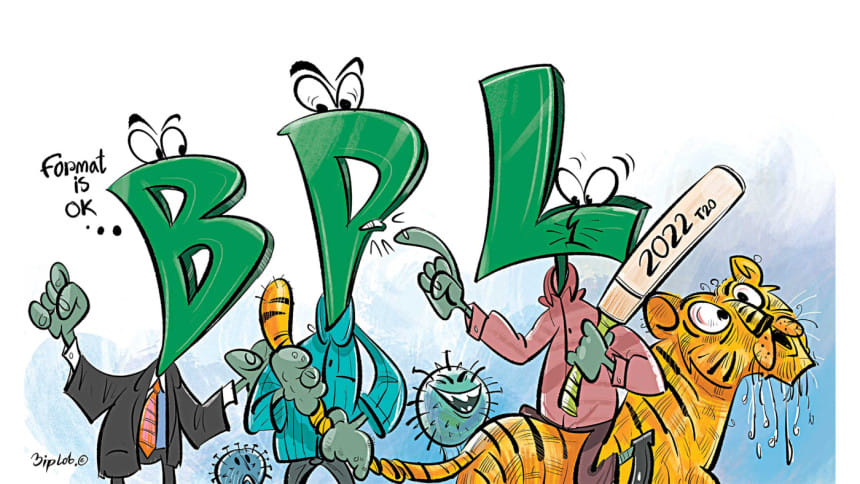Often mired in controversy, BPL still suffering an identity crisis

Dhaka Gladiators, Dhaka Dynamites or Minister Group Dhaka? Which team should fans pledge allegiance to?
The ever-changing shuffle of franchises, and with it their names, is enough to drive home the point that the Bangladesh Premier League (BPL), the nation's premier franchise-based T20 tournament, has failed to establish its own identity nearly 10 years after its inception.
When the BPL launched in 2012, it certainly lured in viewers and gained massive public acceptance for a promise to follow in the footsteps of the Indian Premier League (IPL) and a pledge to perfect the 'brand of cricket' the country wants to display in the format.
The fact that it was at a time when T20 cricket was at the peak of its popularity also helped the cause.
But despite all the razzmatazz, the BPL has been mired in controversy since the beginning. From players and staff payment issues, a lack of planning, a failure to form a specific set of rules for smooth operation to even the unfortunate event of spot-fixing, the BPL seemed well behind forging the promised brand of cricket in its first two editions.
However, after skipping a year to combat these issues, the Bangladesh Cricket Board (BCB) was able to revive the league in 2015 with renewed promise and vision. The promise was kept, but only for that season.
In fact, the timing of that edition and performances yielded in that season helped national cricketers prepare better and flourish in the Asia Cup and provide glimpses in the T20 World Cup the following year. "I hope we can hold on to this system in the next BPL," were the words from BCB president Nazmul Hassan back then but while it raised hopes, results never materialised.
After three editions and four years of planning and scrapping, it was time for the BPL to actually prove its standing behind the IPL, a statement that has often been uttered by the tournament's governing body.
For that, the BPL needed to tick the other boxes besides just timely payments and creating a platform for local players to share a dressing room with stars. It needed to ensure more profitability for franchisees and, most significantly, groom up-and-coming national stars capable of going on to rule the T20 format at the international level -- something the IPL has certainly done for India over the years.
When franchises get ownership of a team, they obviously look for more than just exposure. Financial gain remains a major expectation.
However, over the years, franchises have often failed to recover investment due to the BPL governing body's frail financial structure.
When it comes to producing players, the BPL did give Bangladesh players like Afif Hossain, Yasir Ali and Hasan Mahmud, all of whom have since been in and around the national set-up. But their impact on the national side has not even been close to that of IPL finds Ravichandran Ashwin, Rishabh Pant and Ishan Kishan to the Indian side.
Even this year, the BPL started with glitches and the upsurge in Covid-19-related issues pose further challenges. Come January 21, the next 29 days will surely be a testing period for the BPL governing body. Will this edition be riddled with controversy or will the BPL finally take a step in the right direction in terms of establishing its identity?

 For all latest news, follow The Daily Star's Google News channel.
For all latest news, follow The Daily Star's Google News channel. 



Comments